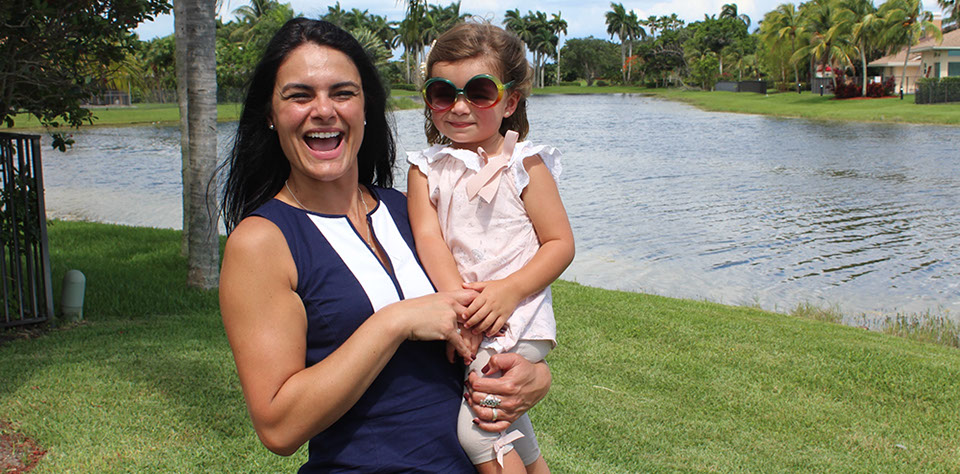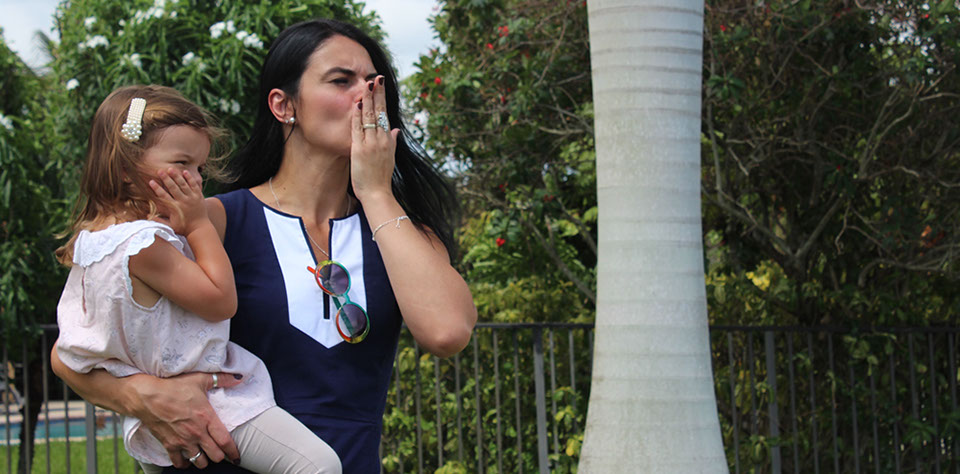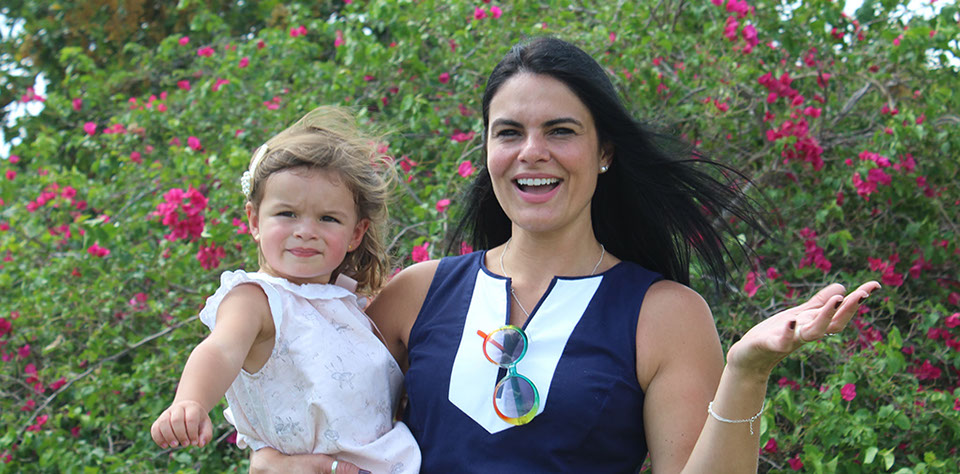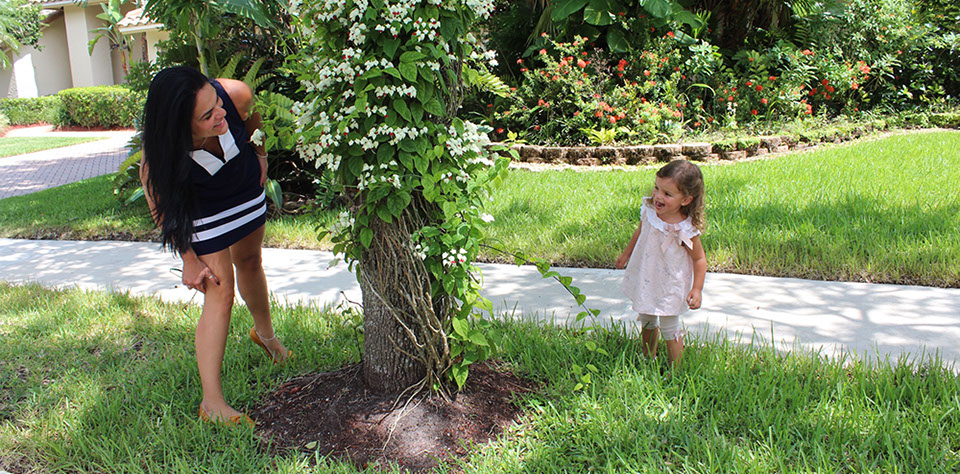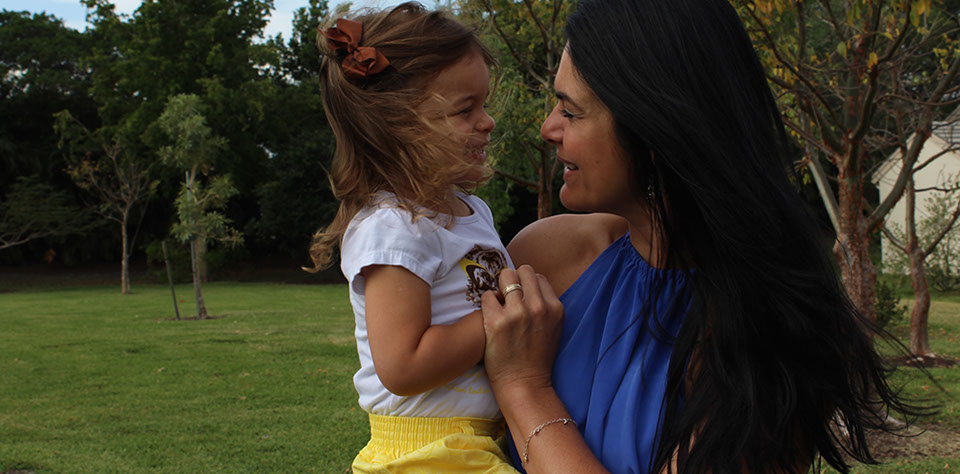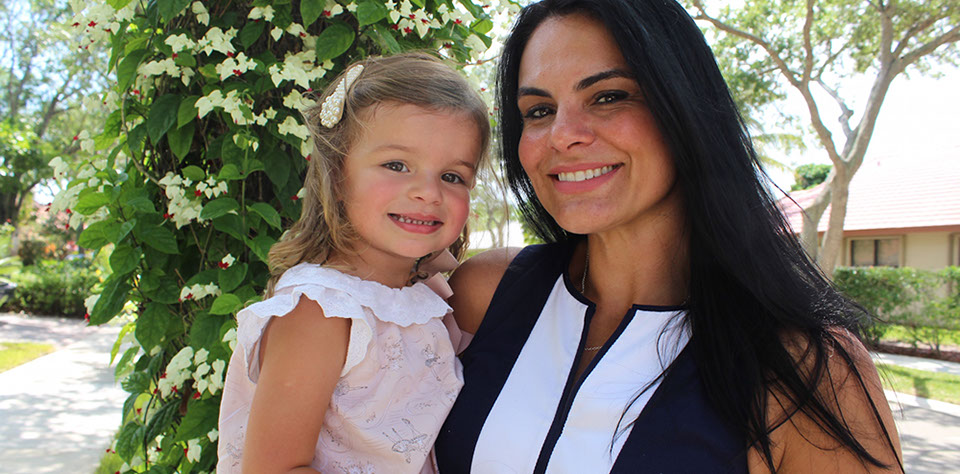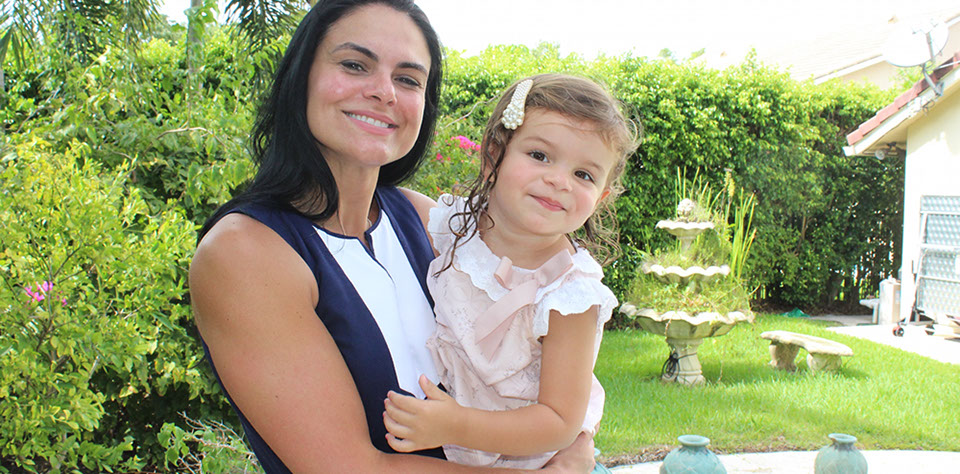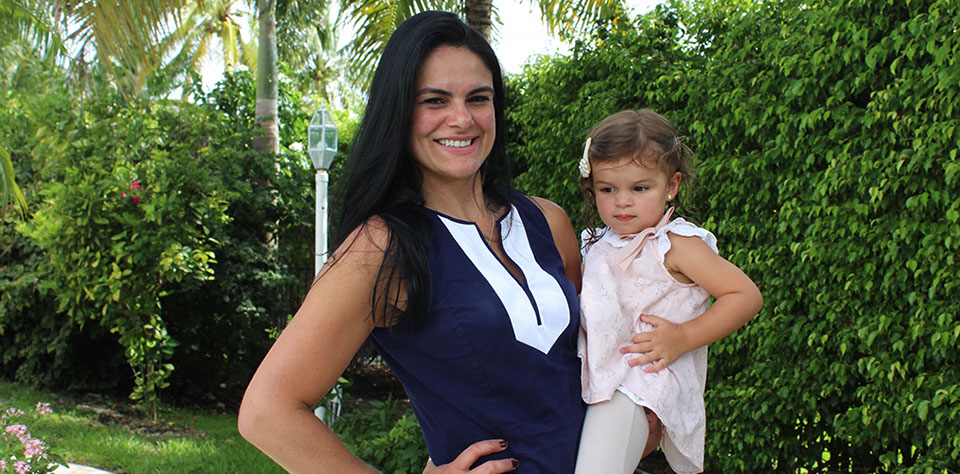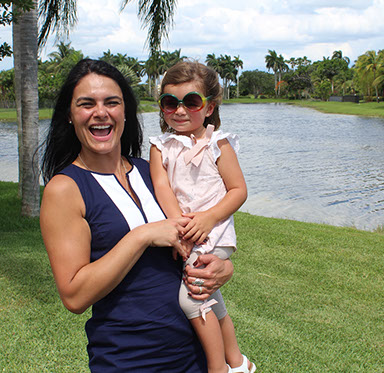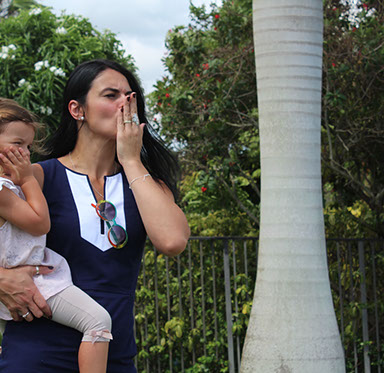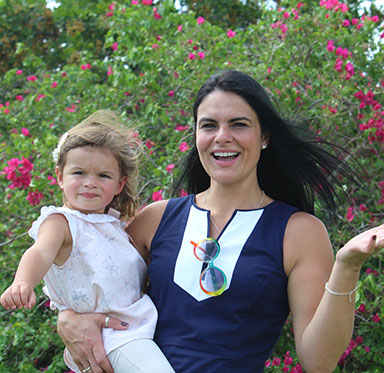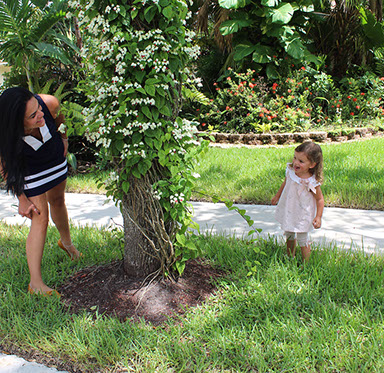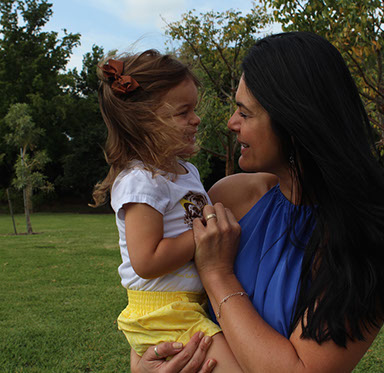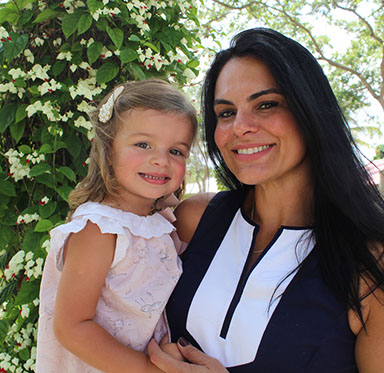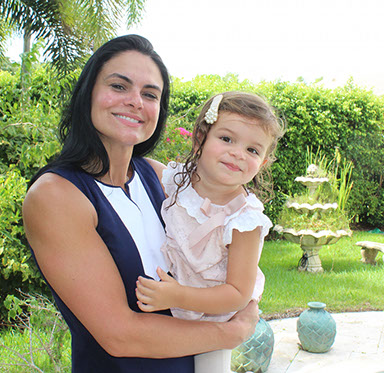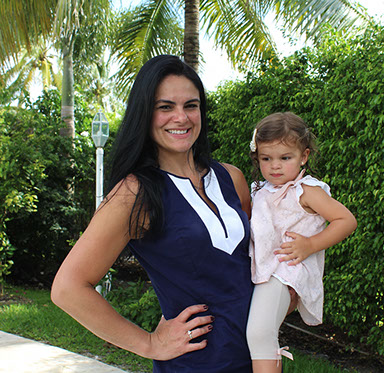MORE STORIES
"Everything shall pass,”
“Everything shall pass,” is the mantra that Bianca uses to renew her energy and overcome barriers in her life. Red is her favorite color, which illustrates perfectly her warrior spirit, strong and yet sensitive. She says “O que é, o que é,” by Gonzaguinha is the soundtrack of her life...demonstrating with much humility (a characteristic of all mothers) that she considers herself an eternal student of life.
Story:
“...I have always been very social, I talk a lot, chat with others, love parties, love people...after the diagnosis, I closed myself off, I’m kind of phobic, because it seems that no matter where I go, people will notice that Isabela is different ...”
In the span of one year and four months, the lives of Bianca and Alexander, parents of Isabela, changed from water to wine. Young, independent, in total control of and having freedom over their life choices, they moved to the United States in January 2015 full of expectations of a new life.
They changed their address, their home town, their country, but they could not have imagined how much they would have to change themselves upon receiving the diagnosis of ASD for Isabela, their baby of one year and six months, in October 2015.
 Eye contact with Bianca BittencourtWeston , FL - 15 de Maio de 2016
Eye contact with Bianca BittencourtWeston , FL - 15 de Maio de 2016
“...As soon as we received the diagnosis that Isabela was on the spectrum, everything changed.”
Divers by hobby, used to diving in waters known for their beauty, clarity, and cleanliness, they were challenged to go deep into a cavernous and unknown ocean, not calm, but a dense blue full of surprises.
This was how this young couple, especially Bianca, felt upon starting their new lives in the United States in 2015:
“...autonomous divers, but without a chance to dive after the ASD diagnosis.
Just the two of them, without family close, without time to grieve, Bianca and Alexander decided that the only option that they had was to dive deep and begin to adapt to the reality of having an autistic child.
“My idea when I arrived in the U.S. was very different. Isabela was going to grow [and] I was going to return to the job market, enroll in school, or be a dedicated mother, but I was going to be Bianca too.”
She declares that, other than changing her routine and the routine of her family, the diagnosis changed the way she saw the world. She realized and recognized that she, like most people, did not know and was never taught how to deal with a special-needs person or child.
“Just feeling on your skin the prejudice is what makes us understand what prejudice really is. I am afraid of going to the park with Isabela and after everything I have done, therapies, people still see that Isabela is autistic and treat her differently, because they certainly treat her differently.”
Bianca had to reprogram her brain and exercise daily a new way of thinking to understand the world of her autistic daughter. The expectations changed, like she says, “I began to compare my daughter with herself, not other typical children.”
Her biggest fear is that she will not be able to help her daughter in learning how to socialize, speak, and communicate. Bianca passes her time worried about Isabela’s future. Her present is doing what she can to help Isabela have independence and a better quality of life in the future. Her biggest source of anxiety is constantly wondering if she is doing everything she can so that Isabela can develop to her maximum potential.
“My purpose became really Isabela’s future. I’m a mom. I want Isabela to have everything. A mom never thinks that what she does for her child is sufficient.”
Bianca, woman, wife, professional can wait. Her priority is to be the greatest possible mother to Isabela and to always be aware and in search of the best treatments for her daughter.
It’s evident that this mother fulfills the most diverse technical and emotional roles so that an autistic child can develop to her maximum potential.
“I know that I have to last more than a mother of a neuro-typical child. That parent knows that their child will go to university. I don’t even know if Isabela will get to that point.”
 Bianca is a mosaic of emotions that crosses with another mosaic of daily duties. Bianca is a mother, with heart and emotion; a teacher, pragmatic and disciplined; and a therapist, sensible and focused. Bianca is a wife, a woman that has to be strong to fulfill, along with her daughter, an exhaustive agenda of therapies seven days a week, twenty-four hours a day. She admits that she feels guilty if she does not make her best effort so that Isabela can have the best results.
Bianca is a mosaic of emotions that crosses with another mosaic of daily duties. Bianca is a mother, with heart and emotion; a teacher, pragmatic and disciplined; and a therapist, sensible and focused. Bianca is a wife, a woman that has to be strong to fulfill, along with her daughter, an exhaustive agenda of therapies seven days a week, twenty-four hours a day. She admits that she feels guilty if she does not make her best effort so that Isabela can have the best results.
“Alexander, the father, does not guilt himself. He is calm. He believes he is doing the most that he can for Isabela, but for me, my best is being there, always vigilant, searching for the best, seeing if the therapist is doing the best.”
Even so, with all of this drive and determination, suddenly those super expressive black eyes fill with tears and she vents, “I frustrate myself a lot because I had to abandon everything because my daughter is not like other children.”
But soon she recomposes herself with a beautiful wide smile to attend to Isabela who calls her to complete a puzzle that she builds while we talk. Just like Isabela seeks to complete her puzzle, Bianca, along with Isabela’s father, try to find the perfect fit for themselves and for Isabela in the world.
Eye to eye with Bianca, one notices that her dive has not yet come to an end and that she no longer is the Bianca from before. Her expectations, her truths, her beliefs, and her fears changed and she knows that they will keep on changing.
Bianca positions herself as a learner and keeps overcoming each day, fighting with herself to stay positive and have faith that she is on the best path for her and her family.
On faith, she comments that after the diagnosis, her faith is different. “I no longer place in God the solutions that I need for my life and Isabela’s life. I feel like my [own] choices and and my struggle are what will...make me reach the general objectives in my life.”
However, the expectations for her individual life, as a professional, do not depend just on her. She is not able to think about herself without thinking of Isabela’s future. She reflects on this and affirms, “Depending on the level of independence Isabela reaches in the future, maybe I will come to be 70% Bianca and 30% Isabela’s mother.”
For this reason, EYECONTACT is not surprised when, in the midst of so many difficulties, Bianca still made time to help other Brazilian parents of autistic children. Bianca created an instagram @uma_autista_na_florida were she tells her story daily as a girl that lives in Florida, passing along valuable information about treatment, inclusion in schools, etc. here in South Florida. Her focus is reaching Brazilian parents of autistic children want to migrate here and therefore need support and information. Bianca did not stop, Bianca dove deep but emerged not only with more generosity but with a new way of looking at herself and others.
To finalize, I want to explain that this first story was chosen to be published because, one more time, Bianca overcame her bashfulness, when she contacted us through social media and asked for help in a moment of desperation. It was at this moment that the EYECONTACT project materialized...for it was shelved away. I have always wanted to spread the word about the courage of the parents of autistic and special-needs children, for they are just as special if not more than their children.
Thank you!
Life Stories


EYECONTACT 2016 | WEBSITE POWERED BY ![]() TEBEART
TEBEART




